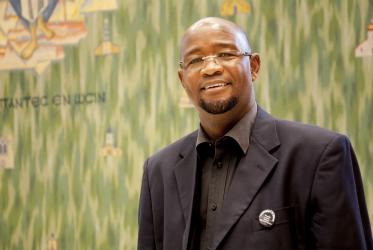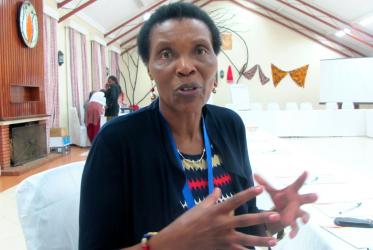Displaying 1 - 16 of 16
01 February 2024
Workshop on HIV stigma, treatment adherence opens in Tanzania
29 September 2021
Moravian Church in Tanzania launches Thursdays in Black
10 September 2019
UN discussion focuses on women, HIV and property rights
21 March 2017
Churches need to do more to tackle HIV and AIDS
23 June 2015
Pilgrimage of justice and peace gives vision for WCC programmes
22 November 2014









